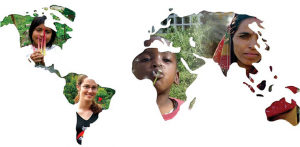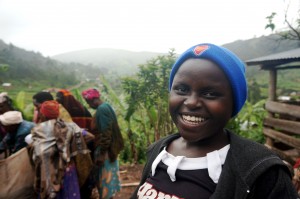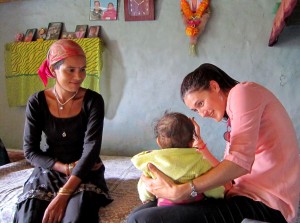Travel and Cultural Intelligence
“Where are you from?” is often the hardest question for me to answer. Do I give the short answer, the long answer, or settle for “it’s complicated” like a provocative Facebook relationship status? Yet that dilemma is a small price to pay for all I’ve gained through experiences living and traveling around the world.
A study from the journal of Social Psychological & Personality Science found that those who engage in multicultural and international environments are more likely to be offered jobs. At surface value, this comes as no surprise; in any arena these days—school, job, socially, or otherwise—it is beneficial to set yourself apart, and “multicultural experiences,” are a great way to do so. But simply accumulating stamps in your passport is not enough. In an article on the study, David Livermore writes “If business travelers spend their time at international hotels and offices; and if study abroad students spend their free time on Skype and Facebook, travel may have little positive benefit for improving CQ (cultural intelligence) and career opportunities.” Travel creates a possibility for transformation through exposure to new cultures and ways of life. But it is easy to pass up that opportunity and flock toward familiarity instead, to head to a Starbucks in a foreign country or find solace from strange surroundings amongst fellow visitors.
The Transformation: How You Engage
Transformative travel requires openness. As more and more and more people seek programmed multicultural experiences— study abroad, volunteering, or simply sightseeing—it is important to evaluate your own goals and the goals of the organization. Responsible international travel necessitates embracing the discomfort and challenges of unfamiliarity, and also willingness to let go of your own authority: to follow the leadership of the locals and see the positive aspects of a community rather than perceived negatives. To me, the most striking overseas experiences have involved connecting with people through common humanness despite apparent differences. These experiences, not traveling itself, are transformative.
I was drawn to work with Child Family Health International (CFHI) because their global health programs promote an immersive experience through community-based projects and perspectives. Interning here and learning about CFHI programs over the past month has made me reflect on my own international experiences. I was born in the U.S. but since age nine I have lived abroad in different countries with my family. Though I have spent much of my life overseas, some who go abroad for shorter periods of time have had more intensive and challenging cultural experiences than mine. It can be easy to entrench yourself in an expat community and become complacent about pushing beyond that.
The study suggests benefits of international travel for your career; I don’t see my experiences overseas as having made me marketable, though I can’t complain if that is a byproduct. Rather, I see travel as the defining aspect of my life that has provided more unique challenges and rewards than anything else. CFHI’s motto encourages students to “Let the world change you,” instead of trying to change the world. It has and will continue to change me throughout my life. And maybe even get me some jobs too.
Special thanks to our guest blogger and CFHI Summer Intern Karoline Walter for authoring this post.



